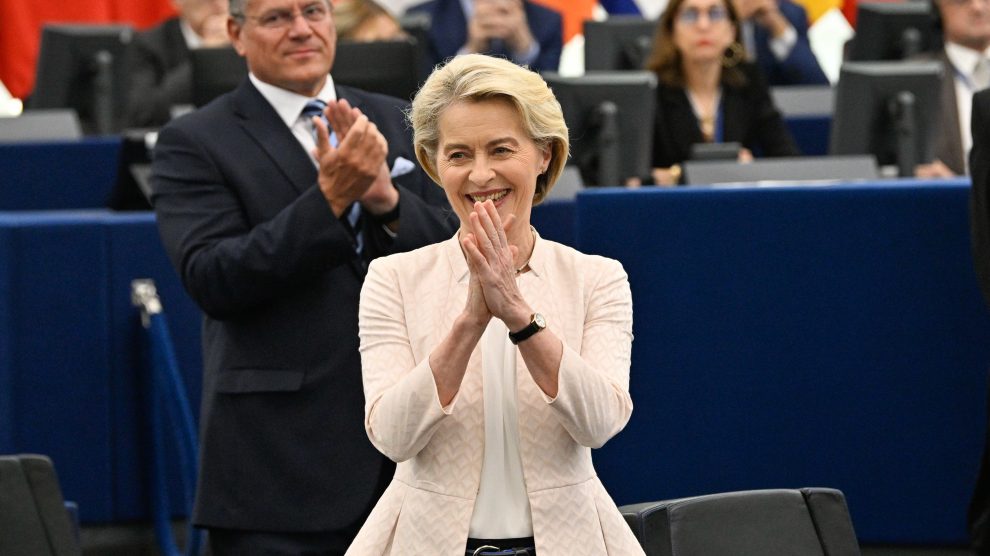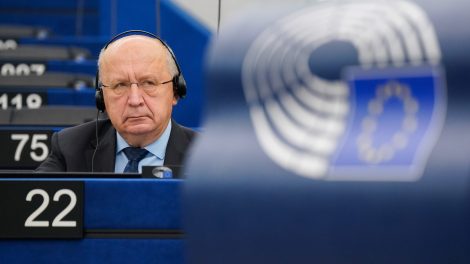Here we go again. Ursula von der Leyen, a centre-right German politician, has been reappointed for a second five-year term as President of the European Commission. The European Parliament confirmed her with 401 votes in favour, 284 against, and 15 abstentions.
- In her speech prior to the vote, von der Leyen emphasised her vision for a stronger Europe, with a focus on economic competitiveness, reducing bureaucratic barriers, and achieving the goals of the Green Deal with practicality.
- She proposed a new initiative called the “Clean Industrial Deal” and suggested appointing a European Commissioner for the Mediterranean to address investments, job creation, and security in the region.
Italian parties divided. The response from the Italian political parties was as expected, with mixed opinions.
- Fratelli d’Italia (ECR group), led by Prime Minister Giorgia Meloni, played a crucial role in the discussions. Despite having a positive relationship with von der Leyen, the party ultimately decided not to support her.
- They stated that striving for a consensus with left-leaning parties, including the Greens, made it impossible for them to endorse von der Leyen. They also emphasised that voting for her would go against some of their beliefs. However, they assured that any future collaboration would be based on the substance of the discussions and conducted with strong and responsible negotiations.
- The Lega (Patriots for Europe), led by Deputy Prime Minister Matteo Salvini, also opposed von der Leyen’s reappointment. The party criticised the coalition supporting her as a “fake centre-right” that forms a convenient majority with the left. The party strongly disapproved of the reappointment and warned that those who supported von der Leyen would be held accountable by the families and businesses affected by their policies, especially the Green Deal.
- In contrast, another party in the government majority, Forza Italia (European People’s Party), expressed strong support for von der Leyen. The leader, Antonio Tajani, who is the Deputy Prime Minister and Minister of Foreign Affairs, congratulated her and emphasised the party’s pride in the EPP’s efforts to ensure her confirmation. He assured von der Leyen of Forza Italia‘s continued support in building a more competitive and secure Europe.
- The Democratic Party (Socialists and Democrats) voted in favour of von der Leyen’s reappointment, expressing satisfaction that the president of the European Commission will not collaborate with the far right, but instead will be open to working with the Green group.
- The Five Star Movement (The Left) criticised von der Leyen’s speech, describing it as lacking substance and failing to address practical realities. They reaffirmed their opposition to her reappointment, emphasising their commitment to peace, justice, social equity, and sustainable development.
A historic opposition. This vote marks the first time in history that the majority of an Italian government has voted against the candidate for President of the European Commission, except for Forza Italia. The reappointment of von der Leyen and her proposed initiatives have significant implications for Italy.
- The ruling party, Fratelli d’Italia, has a vested interest in the role of the next European Commissioner.
- Giancarlo Giorgetti, Italy’s Minister of Economy and Finance, has recently expressed his support for the appointment of Raffaele Fitto, who is currently the Minister for European Affairs in the Meloni government and a former president of the European Conservatives and Reformists party (ECR).
- Von der Leyen’s promise to focus on the Mediterranean region, which includes tripling the Frontex border and coast guards to 30,000, resonates with Italy’s geopolitical interests and the proposed Italian Mattei Plan for Mediterranean investments.





